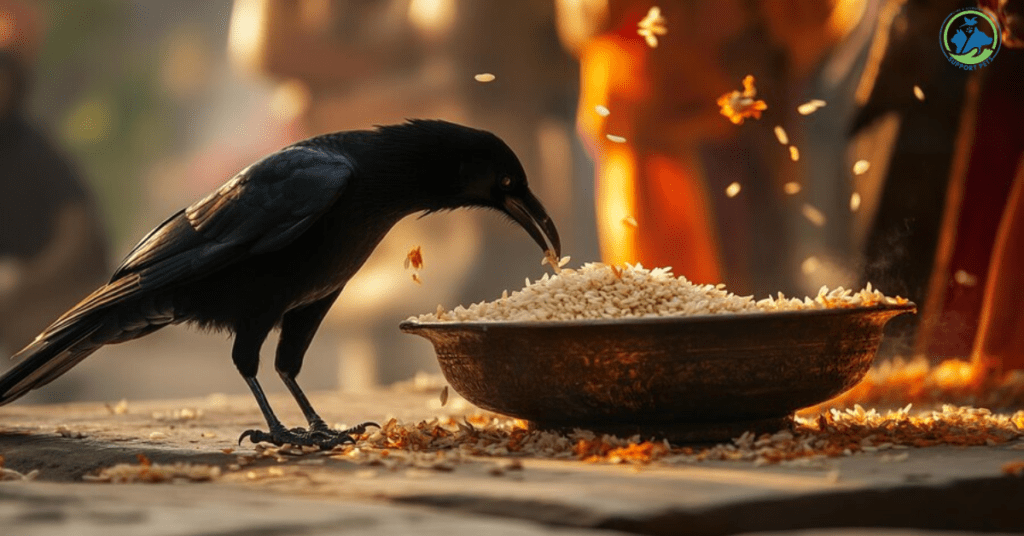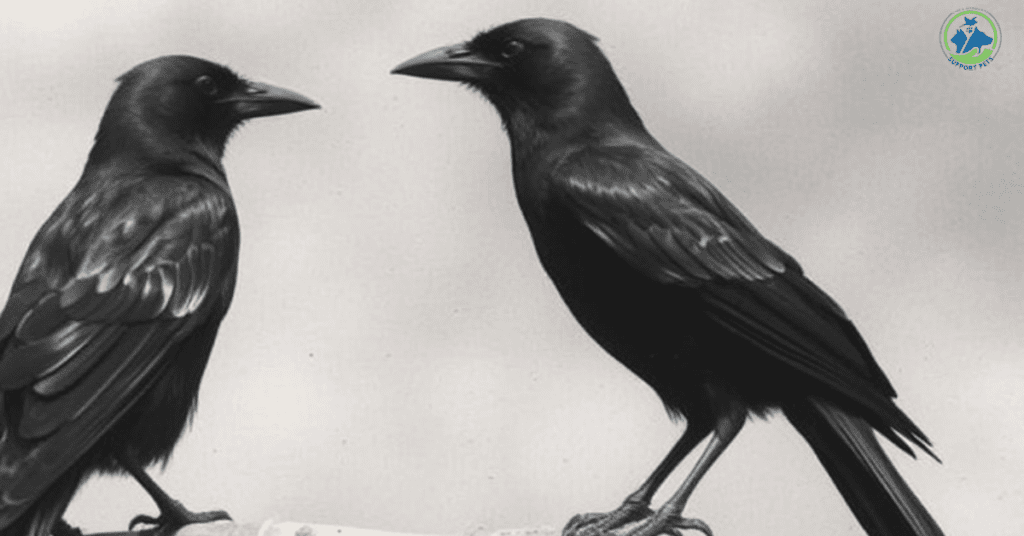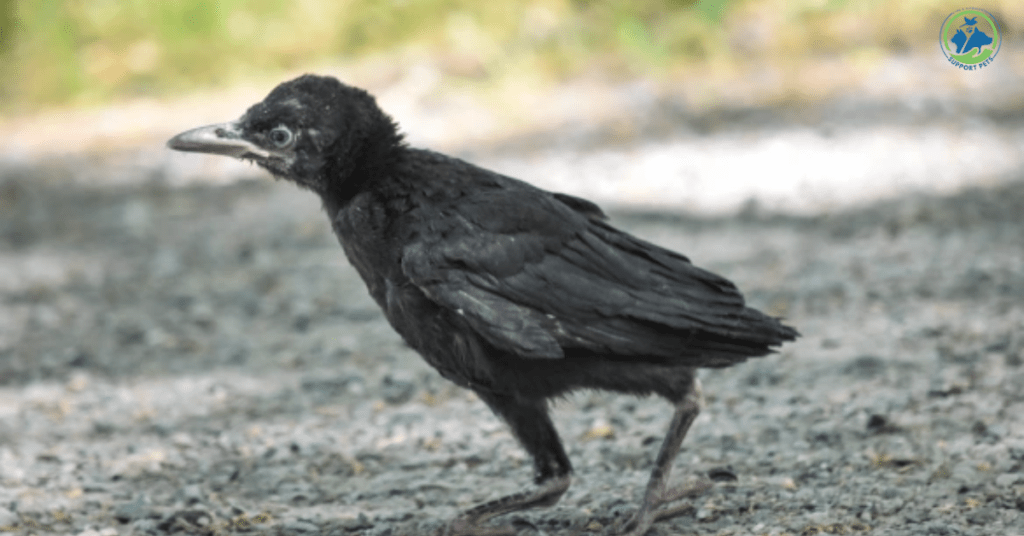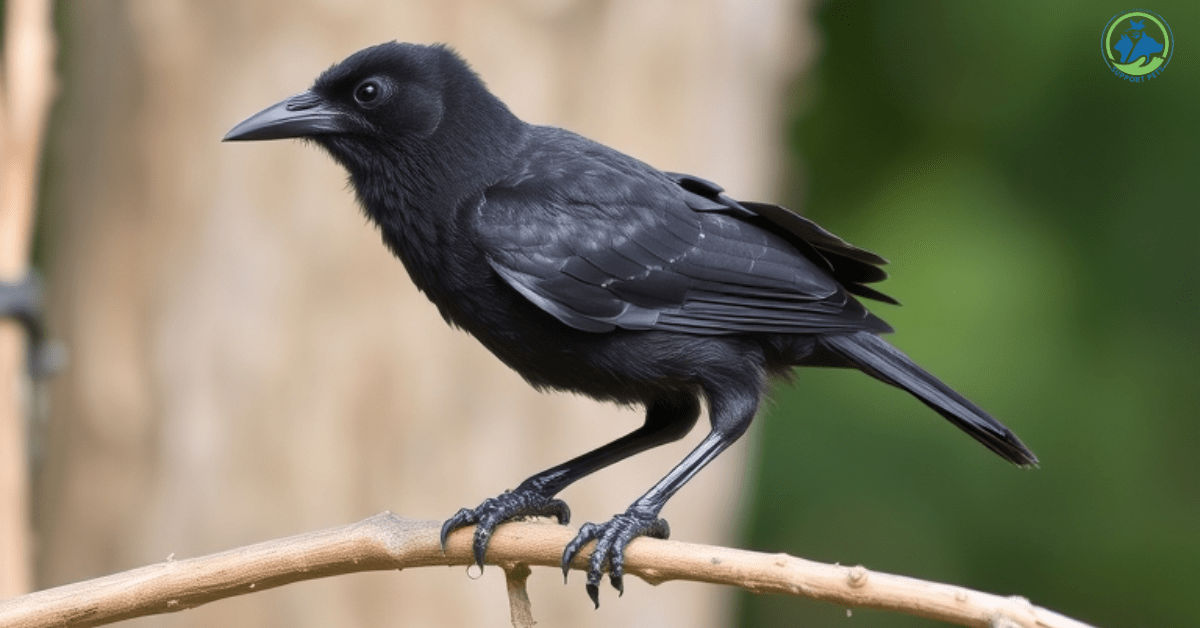Baby crow is an intriguing creature, often misunderstood by many. As members of the intelligent corvid family, baby crows exhibit remarkable behavior from a young age. In this blog, we’ll explore their early life, feeding habits, and social structure, while also discussing common misconceptions about these black-feathered birds.
| Topic | Details |
|---|---|
| Baby Crow? | A fledgling or nestling dependent on parents for food and protection. |
| Growth Stages | Hatch featherless, develop feathers and eyes, leave the nest in about six weeks. |
| Parental Care | Both parents feed and protect, teaching survival skills. |
| Diet | Omnivorous; fed insects, small mammals, fruits, and seeds. |
| Feeding Method | Parents regurgitate food for young until they can eat independently. |
| Do Crows Eat Baby Birds? | Rarely; primarily scavengers, may eat eggs or young in survival situations. |
| 1974 Study Insight | Crows can adopt orphaned young, indicating strong social bonds. |
| Survival Skills | Learn food finding and predator recognition from parents; face various threats. |
| Common Misconceptions | Not aggressive; loud calls are for communication; hoarding is a survival tactic. |
What is a Baby Crow?
A baby crow, also known as a fledgling or nestling, is a young crow still dependent on its parents for food and protection. Baby crows go through various stages of development, from hatching as tiny, featherless creatures to becoming independent young birds.
Stages of Growth in a Baby Crow
Baby crows hatch with their eyes closed and no feathers. Over the next few weeks, they develop feathers, open their eyes, and eventually begin to leave the nest. This period of rapid growth is critical for their survival.
Parental Care and Nesting Habits
Crows are devoted parents. Both male and female crows contribute to feeding and protecting their young. Baby crows remain in the nest for up to six weeks, during which time their parents provide them with food and teach them vital survival skills.
What Do Baby Crows Eat?

During their early days, baby crows rely entirely on their parents for nourishment. Crows are omnivores, meaning they feed their young a diet rich in both animal protein and plant matter. This includes insects, small mammals, fruits, and seeds.
Feeding Process
Baby crows are fed through regurgitation. The parents consume food and then regurgitate it to their young, ensuring it is soft enough for them to digest. This process continues until the baby crows are strong enough to eat on their own.
Do Crows Eat Baby Birds?
While crows are omnivorous, they rarely prey on baby birds. They are more likely to scavenge for food or hunt small insects. However, in rare cases, crows may eat other birds’ eggs or young, typically as a means of survival when other food sources are scarce.
Crow Study 1974: Adopted Baby Crows

A famous 1974 study revealed remarkable insights into the behavior of crows, especially regarding their adoption of orphaned baby crows. The study demonstrated that crows exhibit strong social bonds and are capable of adopting and caring for unrelated young, a behavior rarely seen in the animal kingdom.
Key Findings of the Study
The 1974 study showed that crows are highly social and have the ability to recognize and care for non-related young. This challenges the idea that birds only care for their own offspring, showcasing the complex social structure of crows.
Impact of the Study on Crow Research
The findings of the study have greatly influenced the understanding of crow behavior. It helped establish crows as intelligent and socially complex birds. This research continues to shape how scientists study avian intelligence and social behavior today.
Baby Crow Behavior and Survival Tactics

Baby crows face numerous challenges during their early life. Predators, environmental hazards, and competition for food all pose threats to their survival. However, their parents’ guidance and protective instincts increase their chances of reaching adulthood.
Learning from Their Parents
Baby crows learn essential survival skills from their parents. They are taught how to find food, recognize predators, and communicate with other crows. This early education is crucial for their development.
The Role of Fledgling Calls
Fledgling crows use distinct calls to communicate with their parents. These calls signal when they are hungry or in danger. Parents respond by bringing food or protecting their young from potential threats.
Read More: Mini Golden Retriever
Common Misconceptions About Baby Crows
Many people believe that crows are dangerous or aggressive, especially when it comes to baby birds. However, these misconceptions often arise from a lack of understanding of crow behavior.
Are Baby Crows Aggressive?
While baby crows can be noisy and demanding, they are not inherently aggressive. Their loud calls are simply a way of communicating with their parents. In most cases, crows are more curious than hostile.
Do Crows Steal and Hoard?
Crows are known to be resourceful, often collecting shiny objects or food to store for later. While this behavior may seem like stealing, it’s a survival tactic that helps them during times of scarcity.
How to Care for a Baby Crow
If you come across an abandoned or injured baby crow, it’s important to approach the situation with caution. Crows are protected under wildlife laws, and it’s best to contact a wildlife rehabilitation center for assistance.
What to Do If You Find a Baby Crow
Before intervening, observe the baby crow from a distance. In many cases, the parents may still be nearby, watching over their young. If the crow appears injured or abandoned, contact a local wildlife expert for advice.
Feeding and Care for Baby Crows in Rehabilitation
Wildlife rehabilitators have the expertise to care for baby crows. They provide them with appropriate food, shelter, and medical attention. It’s important not to attempt to care for a baby crow on your own without proper training.
FAQs
Yes, crows are opportunistic feeders and may eat baby birds, including those of other species, when food is scarce.
Yes, crows can eat baby magpies, as they often prey on vulnerable young birds in their nests.
A baby crow typically makes a high-pitched, plaintive call that resembles a series of harsh caws or cries.
Baby crows primarily eat insects, small fruits, and carrion, relying on their parents to bring them food until they fledge.
Yes, crows will eat baby birds if they find them, as they are known to be scavengers and opportunistic predators.
Conclusion: The Enduring Mystery of Baby Crows
Baby crows are fascinating creatures that play a vital role in the crow’s complex social structure. From their early days of parental care to learning essential survival skills, baby crows grow into intelligent and adaptable birds. Understanding their behavior and challenges helps us appreciate the remarkable lives of these black-feathered birds.










